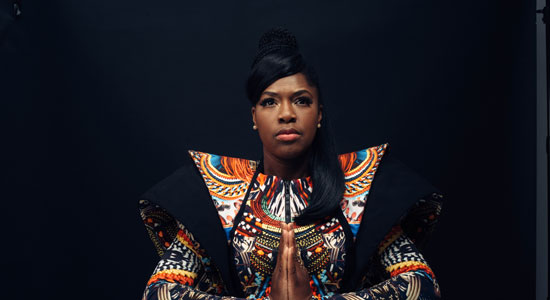
Ibibio Sound Machine makes West African music with a London bent
When singer Eno Williams began collaborating with sax player Max Grunhard, they weren’t thinking about putting a band together. “Max was interested in using the Ibibio language in a musical project, so we started writing stuff in my bedroom,” says Williams. “He knew the other band members from playing around London. We all started exchanging ideas and didn’t even think about performing until we’d made our first album. One of our first gigs was at the Trans Musicales festival in Rennes, which was equally scary and exciting.”
Williams was born in London but grew up in Nigeria, steeped in the culture of the Ibibio people. She didn’t return to England until she was 19. “In Nigeria, I had a musical group with my six sisters,” says Williams. “We used to play in church, but that faded away. It wasn’t until I came back to London and met Max that I started taking music seriously.”
On its eponymous debut, Ibibio Sound Machine pioneered a blend of electronic beats and West African rhythms. “Our first album was a more retro-influenced, West African-sounding record, with a few electro experiments,” she says. “For the second record, we went further in that direction, while still keeping loads of live elements.”
Uyai (Merge), the band’s new album, is a polyrhythmic barrage that combines drum loops, the live percussion of Anselmo Netto and drummer Jose Joyette and the soul-stirring vocals Williams delivers in Ibibio. The music is a perfect marriage of modern urban grit and traditional African sunshine.
“There aren’t many cities in the world where people from such disparate backgrounds could come together,” she says. “We have members from Ghana, Nigeria, Trinidad, Australia, Brazil and England. The city lends its character to the music as well. The dark, imposing vibe of London couldn’t be more different from somewhere like Lagos, the Nigerian city I grew up in.”
—j. poet






